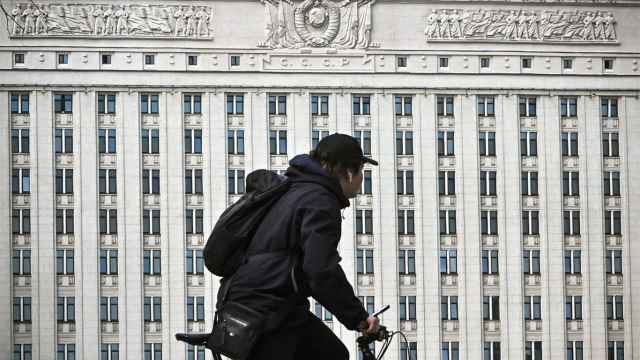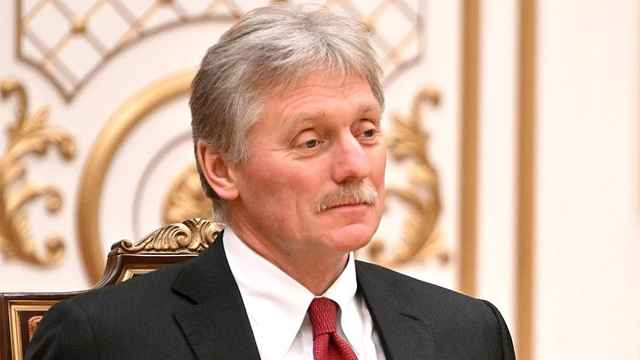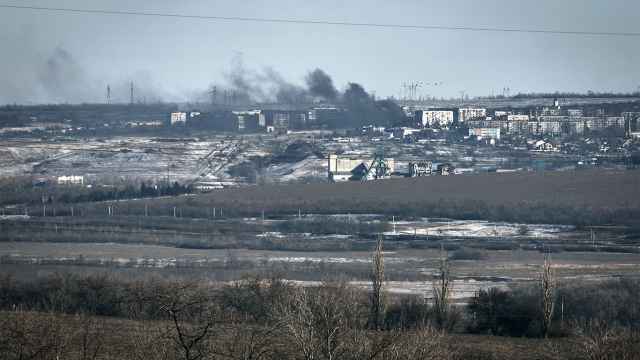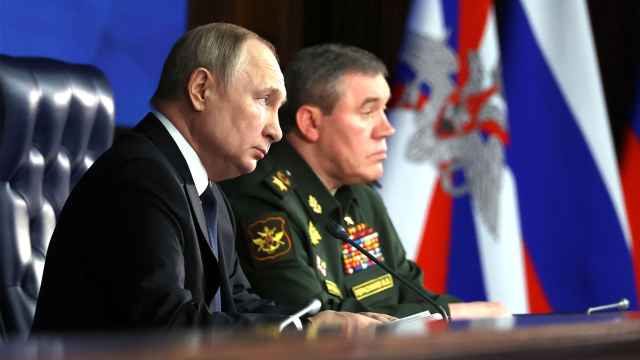Russian lawmakers voted Tuesday in favor of changes to the country's military conscription rules that would make it easier to summon recruits and stop them from fleeing the country.
The new bill comes amid ongoing speculation that authorities could announce a second mobilization drive aimed at boosting Russia’s flagging campaign in Ukraine.
Russia's "partial" mobilization for the war in Ukraine in September 2022 sparked widespread panic among military-age men, with tens of thousands fleeing the country to avoid being sent to the battlefield.
The new bill would require conscripts and other men eligible for military service to show up to recruitment offices after being notified not only physically, but also online, according to its announced revisions.
Lawmakers in the lower-house State Duma backed the bill in its third and final reading Tuesday.
“We’re introducing notifications by mail and offer the possibility to duplicate these summonses electronically,” Andrei Kartapolov, who chairs the State Duma’s Defense Committee, said Monday.
These electronic summonses would be equated to their paper analogs once the Duma adopts the changes, Kartapolov said.
Those who refuse to show up for service would face restrictions including being blocked from leaving Russia.
On Tuesday, Kartapolov said the new electronic summons would not only apply to conscripts, but all other men eligible for military service.
He added that the digital summons would be classified as received once they arrive in a recruit’s inbox on Russia's online public services portal, Gosuslugi.
Observers say the latest rules would make it tougher for eligible Russians to evade compulsory military service as authorities seek to scrape up more recruits to send into battle in Ukraine.
The electronic summons bill did not appear on the Duma’s website until a few hours ahead of its expected passing on Tuesday, according to independent journalist Farida Rustamova.
Russia’s upper-house Federation Council has meanwhile scheduled its single hearing of the bill for Wednesday.
Once the Federation Council votes on the bill — a step that is generally seen as a formality — it will then go to President Vladimir Putin to be signed into law.
Russia’s online army summons follow the recent digitalization of military recruitment offices, which Defense Minister Sergei Shoigu touted as an improvement over the “red tape and bureaucracy” of physical documents.
Putin in December had agreed to Shoigu’s proposal to boost Russia’s combat personnel from 1.15 million to 1.5 million.
A Message from The Moscow Times:
Dear readers,
We are facing unprecedented challenges. Russia's Prosecutor General's Office has designated The Moscow Times as an "undesirable" organization, criminalizing our work and putting our staff at risk of prosecution. This follows our earlier unjust labeling as a "foreign agent."
These actions are direct attempts to silence independent journalism in Russia. The authorities claim our work "discredits the decisions of the Russian leadership." We see things differently: we strive to provide accurate, unbiased reporting on Russia.
We, the journalists of The Moscow Times, refuse to be silenced. But to continue our work, we need your help.
Your support, no matter how small, makes a world of difference. If you can, please support us monthly starting from just $2. It's quick to set up, and every contribution makes a significant impact.
By supporting The Moscow Times, you're defending open, independent journalism in the face of repression. Thank you for standing with us.
Remind me later.






